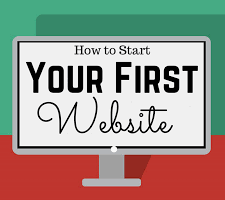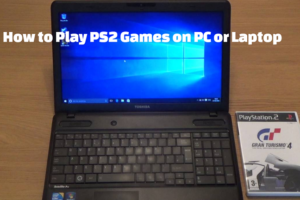Are you thinking of buying your first credit card? We have got something great for you!
Your first credit card is quite crucial for your future credit life. It can decide whether you’ll be a happy owner or someone who’ll be struggling with higher interest rates, late penalties, and so much worse than these.
In fact, your first credit card can be the first financial tool to help you build your Equifax credit report without any error, negative marks, or charge-offs. But, what can go wrong if you just went on to buy a credit card without any research? Quite a lot, honestly!
- You might end up falling behind in the credit score range (poor credit score is a literal nightmare)
- You might have more inquiries than the credit cards under your name (Awe, what a sad day for your building credit)
- Your credit history might become as bad as your financial conditions (Ah, there goes your dream of having a fancy lifestyle)
Argh, only if you knew about all the good things before deciding on your first credit card. Good news, it’s never too late to learn what’s best for you!
Table of Contents
Are You Ready To Buy Your First Ever Credit Card?
Huh? Is there dedicated time to get your first credit card? Can’t you just apply for the card without much thought? Well, if you can afford to have a huge credit debt in your credit history, then yes, indeed you can.
Otherwise, here are some of the things pointed out by NerdWallet research that can decide whether or not you are ready for a credit card:
- If you are ready to save money consistently
- If you know how to practice good spending habits
- If you have an understanding of how the penalties and interest rates work
- If you are organized and responsible enough to think about making any purchasing
- If you think of having an emergency fund for the bad times
Then, it might be the right time to consider applying for a credit card. However, you can always get your first card whenever you feel like it.
But, in general, according to credit experts, the early 20s is the right age to get registered for your first credit card.
How To Know If You Qualify For A Credit Card?
Getting your first credit card is like getting a haircut. If it goes wrong, you’ll have to suffer unless the hair grows back. So, if you made the wrong credit card choice or you failed to manage it correctly, you’ll have to suffer.
- Check if you have the legal age limit before applying (unless you can prove your steady and high income via documents)
- Compare if you have below 20% income ratio (income to debt) and use money management apps to maintain this ratio.
- Be sure to have a steady income so you won’t fall behind your credit.
Things To Look Out Before Buying First Credit Card
Think of your credit card as a challenge that you need to win. Your first credit card can give you a chance to start your credit journey.
But, it all depends on what type of card you want to start with, your income status, and how long you are willing to take and understand the interest rates, annual fees, or other charges. If you’re a business owner, you have to make sure that you understand all the terms and conditions in getting a credit card for your business. Make sure to choose the best credit card for company expenses as it can greatly benefit your business.
Compare & Decide
The first step towards your credit card must always be a healthy comparison between what choices you got. You don’t need to get the first card you saw on the internet because it looked perfect to buy.
- Give yourself some time to research and decide the final pick
- Look for at least three to four cards and do thorough research on the pros and cons
- Read the terms and conditions of all the credit cards on their websites or call to have a better understanding (once you sign, there won’t be any turning back without a bad impact)
Here are the crucial things to compare among the credit card choices you have to decide which is the right one for you:
1. Interest Rate: Ambigue?
Interest rate is the first thing you need to look at while getting your first credit card. Now, the percentage depends on your employment status.
Of course, if you have a stable income, even 20% is a good deal. But, if you’re a student who wants to start building good credit history, it can be troublesome. For instance:
- If you are a college student with an inconsistent or low income, there are high chances of you having a high credit balance. So, your best pick can be choosing a student credit card that has an extremely low or even zero interest rate.
It can help you to take a positive step towards your beginner credit building journey. The scenario can be different for a financially mature and high-income person:
- If you have a stable income, even if the interest rate is 20%, it can work perfectly for your history. Of course, as long as you pay the balance in full regularly.
The point to ponder here is that there’s a chance your first credit card may have a higher interest rate as the lenders don’t know fully yet whether they can trust you with money or not.
2. Annual Fee: Hit Or Miss?
If the card has enough rewards, paying the annual fee is definitely a hit. There we said it.
Of course, you can always find cards with no annual fee at all but, if you’re going to get your first credit card, you should be absolutely confident about it. And, let us tell you: the ones without a fee might be too sketchy. You never know!
- The trick is to calculate your expenses or credit rewards and then compare them to the annual fee and see if it’s worth it or not
- For instance, you’re getting a daily free bonus, the sign-up is 5000 points, you get to enjoy 10% off on groceries, you earn miles and gift rewards for all your spending, then if the annual fee is $40, it won’t be burdensome.
Some credit card companies may also charge a monthly or semi-annual fee, so make sure you know what you are getting yourself into.
If you can’t afford to pay the fees, talk it out with the company beforehand to avoid any negative charges and limitations on your account.
3. Credit Limit: Pass!
Unless you’re going to use your credit card for big purchases, the credit limit shouldn’t be a problem for you. However, it also depends on what type of card you opt for. Usually, the security deposit you’ll submit becomes the credit limit.
In general, your card limit will allow you to make purchases within a certain range. For instance, you want to build your credit score but also don’t want to ruin your budget. Start with a $300 to $500 credit limit card.
So, you will have room for purchasing the essentials but won’t be worried about crossing the budget. However, you still need to consider:
What will happen if you go overboard with your credit card limit?
According to CNBC, when you cross the credit limit, your credit card company will most likely increase the interest rate on that specific card. However, if you own different credit accounts, it might negatively impact your credit score.
- Crossing the credit limit will increase interest rates on all your cards
- Your credit score might fall in the below category (from bad to poor or average to bad)
- Your credit utilization ratio will be increased thus, decreasing your credit score and ruining your chances to rebuild it
So, consider applying for a credit limit increase instead of crossing your low limit.
4. Rewards: Yes Or Yesss?
We know you have been waiting to read this since the start of this blog but, we left the best for the end. Hehe. The most tempting thing about getting your first credit card has to be the rewards. I mean, c’mon, who doesn’t like something extra and free in their life? Yes, freebies are literally the best.
But, the thing to understand here is that you don’t want to get too tempted by the idea of rewards and get nothing in the end except a huge credit debt and high-interest rate value.
- For instance, the credit card has a high annual fee but comes with good discount offers and travel programs. Compare if the reward list is greater than your spending list. Like, if it offers one free vacation on 4 travels, don’t just go straight into the application process. Think if you’ll be using the vacation in the near future.
- Or, your credit card offers cash-back points or redeemable rewards. What’s the use of it if you don’t spend enough money to earn these rewards? You may be attracted to the 5% cash-back but think first whether all the purchasing you do allows your cash-back to be profitable or not.
- The credit card company might give you 5000 sign-up points or even more but make sure to check how you can earn these. For instance, if there’s any condition to make them redeemable like a spending limit in a set timeframe or something like that.
The key is to actually analyze what’s mere talk and what’s actually going to help your case. You need to learn how reward points work to get the best benefit out of them. Here are some of the basic rewards most companies offer:
- Travel miles or vacation points
- Redeemable points for grocery, health, or utilities
- Insurance discounts
- Gift cards
- Cash-back rewards and points
- Balance transfer
- Extended warranty program
- Online mall points
- Sign-up bonus
Final rewards and gift programs depend on which credit card you buy and what’s the reward policy of that company.
How To Use Your First Credit Card Like A Pro?
You’ve read all the things you need to know before buying your first credit card. But, there’s still a chance that you might want to read some extra tips on how to use it. :p
Don’t worry! We got you with these helpful credit tips. Here you go:
- Slow and steady wins the race: If you think you aren’t financially mature to go overboard with your credit limit, take it easy! Start with a $300 limit and put your emergency, Netflix, or gas receipts on it. This way, you can pay off the bills on time while simultaneously building your credit history.
-
- Use the technology: If the credit card company has a mobile application, download it. You will get all the latest updates about vouchers, coupons, codes, promotions, freebies, and all that good stuff. You can also review your score and charges.
- Stay updated with customer service: Your credit card may have enough perks, but there’s a chance you might not be aware of them. Check in the mobile application or go to the website to check the terms and conditions. You can also call customer support to get information about how your card can benefit you.
- Never miss out on your statement: The best thing you can do in the early stages of your credit card is to always keep a check on your credit report. It can save your history from any technical error, incorrect data, faulty numbers, and anything that can hurt your credit score.
- Automate the bills: If you can’t seem to remember even the tiniest charges, you must talk with your company to turn on the notification reminders or automated deduction to help you out in the case.
Bottom Line
Choosing your first credit card is important because the wrong card will make you suffer for a long time. And, the time when you should be enjoying the perks, you’ll be thinking of the ways to build and rebuild your credit score. However, there’s more to credit cards than just rewards, cash-backs, or bonus points.
Annual fees, penalty charges, interest rates, and credit limit are only some of the things you must consider before buying a credit card. Read the article to know every detail!









